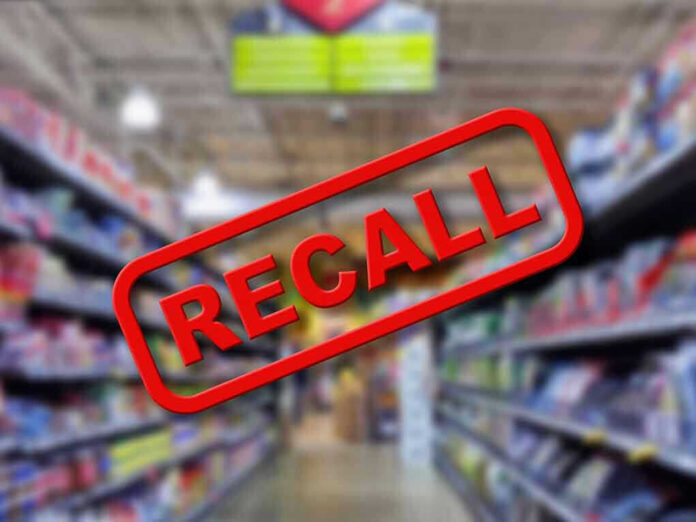
Endico Potatoes Inc. has recalled 25-pound bags of frozen peas, carrots, and mixed vegetables after potentially deadly Listeria monocytogenes contamination was discovered in their processing facility.
Story Highlights
- FDA confirms Listeria contamination in frozen vegetable products distributed nationwide.
- 25-pound commercial bags of frozen peas, carrots, and mixed vegetables are affected by the recall.
- No illnesses reported yet, but Listeria can be fatal to vulnerable populations.
- Production suspended pending investigation into contamination source.
Nationwide Recall Targets Commercial Food Service
The Food and Drug Administration announced that Endico Potatoes Inc. voluntarily recalled specific frozen vegetable products after routine sampling detected the presence of Listeria monocytogenes.
The recall affects 25-pound bags of frozen peas and carrots, as well as mixed vegetables, primarily distributed to commercial food service operations across multiple states.
The company immediately suspended production of the affected products upon laboratory confirmation of the contamination.
While no illnesses have been reported to date, the FDA emphasizes the serious nature of this recall, given Listeria’s ability to cause severe and sometimes fatal infections.
The contamination was discovered during regulatory sampling, highlighting the importance of ongoing food safety monitoring in processing facilities.
Consumers and food service operators are urged to check their freezers and dispose of any affected products immediately.
Listeria Poses Severe Health Risks to Vulnerable Groups
Listeria monocytogenes represents one of the most dangerous foodborne pathogens, particularly threatening to pregnant women, newborns, elderly individuals, and those with compromised immune systems.
The bacteria can survive and multiply even in refrigerated conditions, making frozen food contamination especially concerning. Symptoms typically include fever, muscle aches, nausea, and diarrhea, but severe cases can lead to meningitis, blood poisoning, and death.
Pregnant women face additional risks, as Listeria infections can cause miscarriages, stillbirths, premature delivery, or life-threatening infections in newborns.
The CDC estimates that Listeria causes approximately 1,600 illnesses and 260 deaths annually in the United States.
This recall demonstrates why food safety protocols exist and why companies must maintain rigorous testing standards throughout their operations.
Regulatory Response Follows Established Safety Protocols
The FDA’s handling of this recall follows well-established procedures designed to protect public health while minimizing economic disruption.
Regulatory agencies have developed these protocols through decades of experience managing foodborne illness outbreaks and contamination events.
The voluntary nature of this recall, initiated by the company upon discovery of contamination, represents the preferred approach that balances industry cooperation with consumer protection.
However, this incident raises legitimate questions about inspection frequency and oversight adequacy in food processing facilities.
Conservative principles support both free market operations and protecting American families from preventable health risks.
The fact that contamination was caught before reported illnesses occurred suggests the system worked, but taxpayers deserve assurance that regulatory agencies are conducting thorough and frequent inspections of facilities handling our nation’s food supply.
Economic Impact Extends Beyond Single Company
Food recalls create ripple effects throughout the supply chain, affecting distributors, retailers, restaurants, and ultimately consumers who bear the costs through higher prices.
Endico Potatoes Inc. faces immediate financial losses from destroyed inventory, production shutdown, potential legal liability, and long-term reputation damage.
The company must also implement corrective measures and undergo additional regulatory scrutiny before resuming normal operations.
Broader industry implications include heightened vigilance among competing manufacturers and potential increases in food safety compliance costs.
These expenses inevitably get passed to consumers already struggling with inflation and higher grocery bills.
While food safety remains paramount, government agencies must ensure their oversight is efficient and effective rather than bureaucratic and burdensome to American food producers.
Consumer Action Required Immediately
Food service operators and consumers who may have purchased these products should immediately check their inventory for affected items.
The recalled products include 25-pound bags of frozen peas and carrots, as well as mixed vegetables from Endico Potatoes Inc. Anyone who has these products should dispose of them immediately and contact the company for refund information.
This recall serves as a reminder that food safety remains a shared responsibility between producers, regulators, and consumers.
While we expect companies to maintain safe operations and government agencies to provide effective oversight, Americans must stay informed about recalls and take appropriate action to protect their families.
The speed and transparency of this recall response should be the standard, not the exception, in protecting our nation’s food supply.
Sources:
New York State Department of Agriculture and Markets, Food Product Recall Booklet
Specialty Food Association, 5 Steps to Enacting a Recall
FDA Regulatory Procedures Manual, Chapter 7
National Agricultural Law Center, Food Recalls and How They Work



















